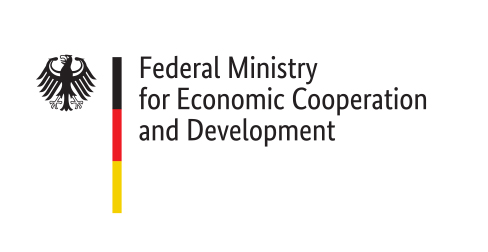Ceres2030
Ceres2030 est un nouveau partenariat entre le monde universitaire, la société civile et les économistes, réunissant trois institutions qui partagent une vision commune: un monde sans faim, où les petits producteurs bénéficient de revenus et d'une productivité agricoles plus élevés, d'une manière qui soutient des systèmes alimentaires durables.
Notre mission est de fournir à la communauté des donateurs un menu d'options politiques pour orienter de la meilleure manière qui soit leurs investissements en utilisant des données factuelles et les meilleurs modèles économiques disponibles.
Ceres2030 rassemble la modélisation économique, l'intelligence artificielle et la synthèse basée sur des preuves en une seule initiative, contribuant à combler un déficit de connaissances majeur dans le domaine de la politique agricole et alimentaire.
Ceres2030 relie ces connaissances à la communauté des donateurs, en s'assurant que les décideurs disposent d'une estimation des coûts et des preuves dont ils ont besoin pour décider où et comment effectuer leurs investissements.
Le partenariat réunit l'Université de Cornell, l'Institut international de recherche sur les politiques alimentaires (IFPRI) et l'Institut international du développement durable (IIDD).
Le soutien financier provient du Ministère fédéral allemand de la coopération économique et du développement (BMZ) et de la Fondation Bill & Melinda Gates (BMGF).
Points clés du projet Ceres2030
Sustainable Solutions to End Hunger
How much it would cost to end hunger, increase incomes and protect the climate by 2030? How can we strategically spend money across dozens of agricultural interventions in different countries?
Ceres2030: Sustainable Solutions to End Hunger
Ceres2030: Sustainable Solutions to End Hunger is a unique research project that provides practical recommendations. By using the latest technology, scientists shave painstakingly investigated the most effective instruments and actions to end hunger by 2030 world wide and on a lasting basis.
Launch Article | Donors must double aid to end hunger - and spend it wisely
Ceres2030’s new research shows that by doubling their investments between now and 2030, donors could help end hunger, double smallholder farmer incomes and protect the climate.
Nature Research | Sustainable solutions to end hunger
The findings were published by Nature Research in a new research collection of peer-reviewed journal articles.
Avec 14 milliards de dollars américains en plus par an, nous pouvons éradiquer la faim et atteindre les objectifs climatiques
Il est désormais temps de centrer cette vague mondiale de créativité et cet engagement financier sur les pays les plus pauvres afin d’éradiquer la faim une bonne fois pour toutes.
Presentation of Ceres2030 at the European Commission - Sustainable Solutions to End Hunger
Ceres2030’s team will engage EU stakeholders on their new research and show that by doubling aid between now and 2030 and spending it wisely, we could end hunger, double smallholder farmer incomes and protect the climate.
Dernières parutions
Ceres2030: Sustainable Solutions to End Hunger - Summary Report
This Summary Report includes a Foreword signed by Dr. Agnes Kalibata UN Special Envoy for the 2021 Food Systems Summit & Dr. Gerd Müller Federal Minister for Economic Cooperation and Development
Ending Hunger, Increasing Ìncomes and Protecting the Climate - Report
This report answer two linked questions: First, what does the published evidence tell us about agricultural interventions that work, in particular to double the incomes of small-scale producers and to improve environmental outcomes for agriculture? And second, what would be the cost?
Ending Hunger Sustainably: The role of social protection
In this brief, the Ceres2030 project team discusses the crucial role social protection plays in addressing poverty and vulnerability, as well as in mitigating the impact of COVID-19 and its associated economic consequences.
Ceres2030: Sustainable Solutions to End Hunger FULL REPORT
This publication opens with an editorial from Nature entitled “To end hunger, science must change its focus” followed by the Ceres2030’s foreword which was signed by Dr. Agnes Kalibata, UN Special Envoy for the 2021 Food Systems Summit and Dr. Gerd Müller, Germany's Federal Minister for Economic Cooperation and Development. We have also included the complete findings as published in Nature Portfolio journals thematically grouped around the three Ceres2030 clusters of interventions: On the Farm; On the Move; and Empowering the Excluded.
Parutions récentes
Ending Hunger: What would it cost?
A number of recent estimates exist for what is needed to end hunger and malnutrition. The estimates vary but all agree it will require a mix of investment in infrastructure, research and development, extension services and safety nets.
Good Food For All – Averting a COVID-19 hunger crisis
This virtual event is intended to drive investments in the Sustainable Development Goal 2 related to ending hunger via raising awareness of numbers and costs needed.
How Are African Governments Responding to Avert a COVID-19 Hunger Crisis?
This Ceres2030 webinar brought together African ministers responsible for agriculture and trade to discuss the measures their countries are taking to avert a hunger crisis by ensuring that livelihoods are secured and food systems remain functional.
We Need a Global Stimulus Package to Avoid a COVID-19 Hunger Crisis
COVID-19 has hit hard, fast and everywhere. It is, above all, a public health crisis and addressing it as such is today’s most critical challenge. But already the links to other crises are emerging.

